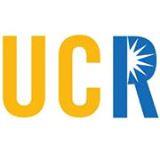
Tobacco shops associated with crime in urban communities of color
UC Riverside-led study, focused on South Los Angeles, also suggests that medical marijuana dispensaries may not be closely linked to neighborhood violence
University of California - Riverside
Tobacco shops, also known as smoke shops, may represent potential "nuisance properties" in urban communities of color, a study led by a researcher at the University of California, Riverside has found. Nuisance properties are properties where unsafe activities affecting public health and safety occur repeatedly.
Past research has shown that alcohol outlets such as liquor or corner stores may promote nuisance activities like robberies, drug use, or other crimes in urban communities, rendering them unsafe for residents to walk by or visit. Other examples of nuisance properties are motels, payday lenders, and vacant homes and lots. Add to this list now tobacco shops.
"We know alcohol outlets can be associated with unsafe nuisance activities in urban areas, but this study appears to be the first to suggest U.S. tobacco shops may also impact public health," said Andrew Subica, Ph.D., an assistant professor of social medicine, population, and public health in the School of Medicine, who led the study that focused on South Los Angeles, Calif. "Our analyses show that in South Los Angeles tobacco shops as well as liquor stores were associated with high levels of violent and property crime around their locations. This finding is important because tobacco shops are common in many cities, but until this study have not been viewed as possible public health threats. "
The study, which appears in Preventive Medicine, focused on 2014 violent and property crime data from South Los Angeles, a large urban community containing Los Angeles County's highest concentration of African Americans, adults without high school education, and residents living in poverty. Residents also experience high rates of adult and childhood obesity, diabetes, HIV/AIDS, and mortality from diabetes, coronary disease, and cerebrovascular disease. The area's homicide rate is nearly four times the national rate.
Subica and his colleagues chose to use data from South Los Angeles because residents informed the researchers that not just liquor stores but also tobacco shops were proving to be dangerous.
"The community calling smoke shops dangerous came as a surprise to us, and it sparked our interest in doing the study," Subica said. "After reviewing the research literature, we found no one in the U.S. seemed to have studied these shops' relationship to crime before."
The study also looked for associations between medical marijuana dispensaries and crime in South Los Angeles, a timely topic given the recent legalization of recreational marijuana use in California.
"Our research indicated that dispensaries were not linked to greater violent crime around their locations," Subica said, "likely for several reasons including that they often appear and disappear quickly in these communities while liquor and tobacco stores stay at one location for many years. Many dispensaries also have property safeguards like security guards and cameras to deter crime that liquor and tobacco stores may not."
Next, the research team will study how the potential negative health impact of tobacco shops and liquor stores can be mitigated in South Los Angeles through community action and policy change. Subica believes strategies developed by South Los Angeles organizers and policy makers to reduce crime and violence around these properties may carry over to other large cities throughout the U.S., which also possess high numbers of tobacco shops and liquor stores.
"When residents and children cannot walk in certain areas in their neighborhoods for fear of being harmed, this poses a public health problem," Subica said. "For example, Riverside, San Bernardino, and Los Angeles residents living in areas with many nuisance properties will find it harder to do healthy activities that other communities take for granted like walking and exercising outdoors or letting their kids play in public parks.
"Even though tobacco shops have rarely been targeted by the police or community for intervention," he added, "based on our data, we believe tobacco shops in urban communities of color should be regulated to improve community health in the same way as alcohol outlets and other public nuisances."
###
The study was supported by a grant from the Centers for Disease Control and Prevention to the Community Coalition, a South Los Angeles-based social justice organization. Subica, a member of UCR's Center for Healthy Communities, was joined in the research by Jason Douglas at San Jose State University; Nancy Kepple at the University of Kansas; Sandra Villanueva at Loyola Marymount University; and the study's senior author, Cheryl T. Grills at Loyola Marymount University.
The University of California, Riverside is a doctoral research university, a living laboratory for groundbreaking exploration of issues critical to Inland Southern California, the state and communities around the world. Reflecting California's diverse culture, UCR's enrollment is now nearly 23,000 students. The campus opened a medical school in 2013 and has reached the heart of the Coachella Valley by way of the UCR Palm Desert Center. The campus has an annual statewide economic impact of more than $1 billion.
